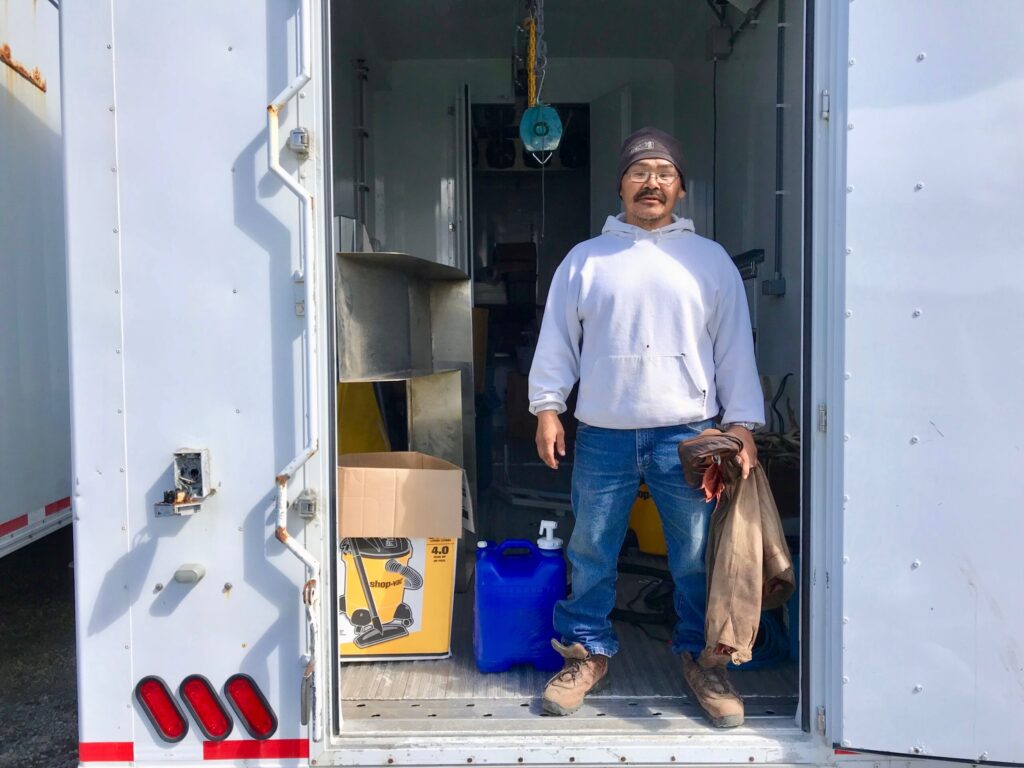The Marine Mammal Commission has created a sub-committee to review various examples of co-management that exist up and down the Bering Strait. Communities involved in this review include St. Paul Island, Atka, Akutan, Utqiagvik, and St. Lawrence Island.
One of the committee members involved with the project, Vera Metcalf, says co-management is crucial to the subsistence lifestyle in Western Alaska.
“I needed to have a very good understanding so I could translate it into St. Lawrence Island Yupik, so the folks out on the island could understand what we are trying to accomplish with this project. Co-management has many different definitions but we wanted to make it a working definition specifically for this project, so to me it [co-management] is joint management between an agency and the hunting communities, or an Alaska Native organization like the Eskimo Walrus Commission”
Metcalf is also the director of the Eskimo Walrus Commission. Using her regional expertise and her knowledge of St. Lawrence Island, Metcalf has been translating subsistence hunters’ testimony into English for the review of co-management project. Metcalf says generally the people she has interviewed are happy with co-management, but climate change concerns them.
“Some of the hunters that I heard speak, have concerns about climate, the difficulty of harvesting marine mammals, having an equal voice in some of these high level discussions, or opportunities to be part of a solution”
The Marine Mammal Protection Act allows the U.S. Fish & Wildlife Service and the National Marine Fisheries Service to enter into agreements with Alaska Native organizations in order to co-operatively manage marine mammals. According to the Marine Mammal Commission, 12 species are currently co-managed in Alaska.
Heading up this project to review co-management agreements, is Dr. Jennafer Malek.
“At the behest of the Indigenous Peoples Council for Marine Mammals (IPCoMM) we decided to write a proposal to get funding to conduct a co-management review for marine mammals and the North Pacific Research Board actually funded this proposal. The way we selected our case studies for this project was we wanted to look at the two different agencies that manage marine mammals, the National Marine Fisheries Service and the U.S. Fish & Wildlife Service. So Fish & Wildlife covers polar bears, walrus, and sea otters in Alaska and then the NMFS is all of the other species”
Based on what Malek has heard so far in her work with the project, which is scheduled to last through November, co-management can work well. Subsistence hunters have been managing these marine mammal resources for centuries and they know what they’re doing. However, she says there’s always room for improvement.
“The hope is that we can have these recommendations, have everybody use them, whether you have a very small budget or a very large budget, if you have one or two people running your office, versus a whole army of folks helping you out”
Dr. Malek’s last visit for the co-management review project is scheduled for the end of August to the Aleutians. After that time, she expects to compile their findings, then release general recommendations to each of the participating communities and agencies.







